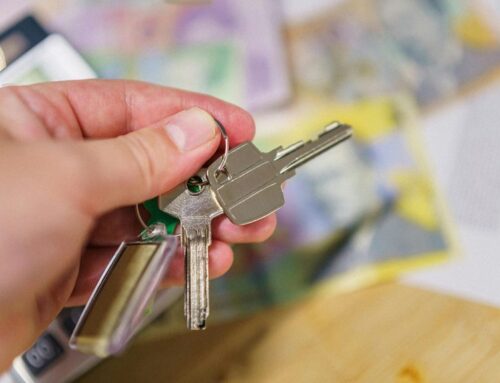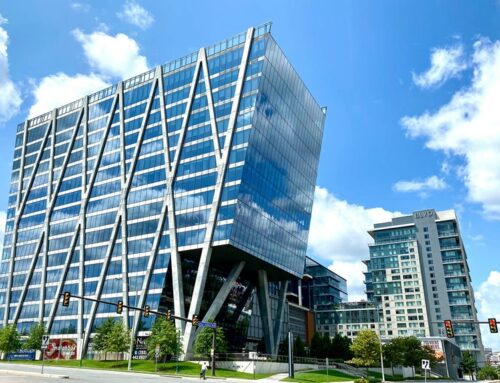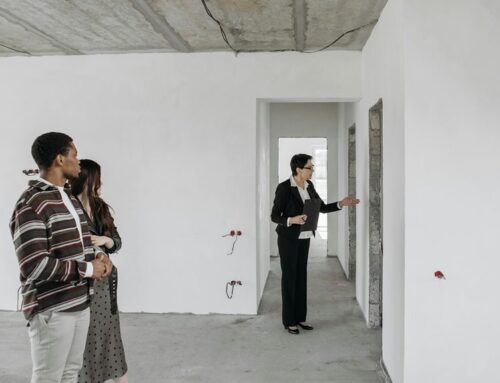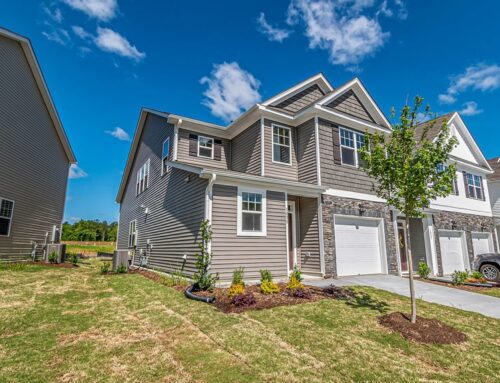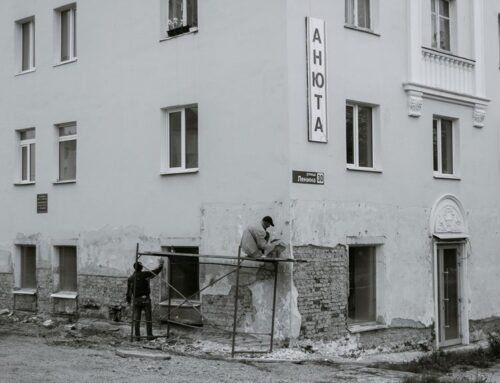Given the potential for significant savings, the opportunity for investment potential, and the chance for quick acquisition, purchasing a foreclosed home presents both advantages and risks worth assessing. You could save on initial costs and potentially see a high return on investment, but there might be hidden property issues and financial risks to contemplate. It’s important to weigh these factors carefully before making a decision on buying a foreclosed property.
Potential for Significant Savings
Considering purchasing a foreclosed home can offer the potential for significant savings. When a property goes into foreclosure, the bank or lender is motivated to sell it quickly to recoup their losses. This urgency often leads to foreclosed homes being listed at prices below market value.
By buying a foreclosed home, you could potentially secure a property at a lower price than what you’d pay for a similar home on the traditional market. These savings can allow you to invest more in renovations or upgrades to customize the property to your liking.
However, conducting thorough research and inspections is crucial to making a sound investment and not solely focusing on the initial cost savings.
Risk of Hidden Property Issues
Beware of potential hidden property issues when purchasing a foreclosed home. While the savings can be enticing, there are risks to keep in mind.
Foreclosed homes may have been neglected or poorly maintained, leading to hidden problems like mold, pest infestations, or structural issues. These issues can be costly to address and may not always be immediately apparent during a walkthrough. It’s important to conduct a thorough inspection and keep in mind hiring a professional to uncover any hidden problems before committing to the purchase.
Additionally, previous owners facing foreclosure may have removed appliances, fixtures, or even damaged the property out of frustration. Being aware of these potential issues can help you make an informed decision and avoid unexpected expenses down the road.
Opportunity for Investment Potential
Let’s talk about the exciting opportunity for investment potential when purchasing a foreclosed home.
The potential for a high return on investment is one of the main attractions for buyers in the real estate market. However, it’s important to carefully consider the financial risks involved before making a decision.
Investment Return Potential
When exploring the investment return potential of purchasing a foreclosed home, it’s essential to carefully assess the financial opportunities at hand. Investing in a foreclosed property can offer significant potential for returns, but it’s crucial to understand the factors that influence this potential. By purchasing a foreclosed home at a discounted price, you have the opportunity to potentially increase its value through renovations and improvements. Additionally, in a market where property values are appreciating, the resale value of the foreclosed home could rise, providing you with a profitable return on your investment.
| Factors Influencing Investment Return Potential | Impact |
|---|---|
| Property Location | High |
| Market Trends | Medium |
| Renovation Costs | Medium |
| Holding Period | Low |
Financial Risk Considerations
As we navigate the realm of foreclosed home investments, our focus now shifts towards the domain of financial risk considerations. When delving into purchasing a foreclosed property, it’s essential to understand the potential financial risks involved.
One significant risk to be aware of is the possibility of unforeseen repair costs. Foreclosed homes may have been neglected, requiring substantial investments in renovations or repairs. Additionally, there’s the risk of hidden liens or back taxes that could surface post-purchase, leading to unexpected financial burdens.
Moreover, the fluctuating real estate market can impact the value of the property, potentially resulting in a lower resale value than anticipated. Conducting thorough research and working with a knowledgeable real estate professional can help mitigate these financial risks and lead to a successful investment venture.
Uncertainty of Property Condition
Exploring the purchase of a foreclosed home can be a challenging task, especially when faced with the uncertainty of the property’s condition. When considering a foreclosed property, it’s important to understand that these homes are typically sold “as-is,” meaning the buyer may inherit any existing issues or damages. Structural problems, hidden damage, or neglect are common concerns with foreclosed properties.
It’s crucial to conduct thorough inspections or hire professionals to assess the property’s condition before making a purchase. Additionally, since foreclosed homes are often vacant for extended periods, issues like mold, pests, or vandalism could arise, further adding to the uncertainty.
Being prepared for potential surprises and factoring in repair costs is crucial when deciding whether to buy a foreclosed home.
Chance for Quick Acquisition
Considering a foreclosed home presents a unique opportunity for a quick acquisition. When a property goes into foreclosure, the lender is motivated to sell it swiftly to recover the outstanding loan amount. This urgency can work in your favor if you’re looking for a fast purchase process.
Unlike traditional home sales that may involve lengthy negotiations, a foreclosed property often has a streamlined sale procedure. With fewer parties involved and a motivated seller, you may find yourself closing the deal sooner than expected.
This quick acquisition can be advantageous, especially if you’re in a hurry to find a new home or looking to invest in real estate promptly. Just remember to act decisively and be prepared to move swiftly through the purchasing process.
Complexity of Buying Process
Let’s talk about the complexity of buying a foreclosed home. The process can be lengthy, requiring patience and thorough research. Additionally, the amount of paperwork involved can be overwhelming, so it’s important to stay organized and diligent throughout the transaction.
Process Length
Exploring the process of purchasing a foreclosed home can be a time-consuming endeavor due to the complexity of the buying process. From finding the right property to closing the deal, each step requires careful consideration and attention to detail. Below is a breakdown of the process length involved in buying a foreclosed home:
| Process Step | Estimated Timeframe |
|---|---|
| Property Search | 2-6 months |
| Making an Offer | 1-2 weeks |
| Negotiating Terms | 2-4 weeks |
| Home Inspection | 1-2 weeks |
| Closing the Deal | 30-45 days |
Understanding the timeline involved in purchasing a foreclosed home can help you prepare and navigate the process more efficiently.
Required Paperwork
Managing the process of purchasing a foreclosed home not only involves a significant time commitment but also requires meticulous attention to detail when it comes to the required paperwork.
The paperwork for buying a foreclosed home can be quite extensive and complex. You’ll likely need to fill out detailed forms, provide financial documentation, and potentially navigate additional legal paperwork compared to a traditional home purchase.
It’s pivotal to review all documents carefully, ensuring everything is accurate and in order to avoid any delays or complications in the purchasing process.
Working closely with a real estate agent or attorney experienced in foreclosures can help you understand and navigate the required paperwork efficiently, making the process smoother and less stressful.
Potential for Equity Growth
Considering the potential for equity growth when purchasing a foreclosed home is a crucial aspect that can significantly impact your investment.
One major advantage is the opportunity for significant appreciation in value over time. Since foreclosed properties are often sold below market value, there’s a chance for substantial equity growth as the property’s value increases.
This potential for equity growth can lead to a profitable return on investment if the property is well-maintained and the market conditions are favorable. However, it’s vital to carefully research the property’s location and condition to make sure there’s genuine potential for equity growth.
Financial and Legal Risks
Exploring the realm of purchasing a foreclosed home involves not just the promise of potential equity growth but also an awareness of the financial and legal risks that come with it.
Financially, buying a foreclosed property may require significant upfront costs for repairs or renovations. Additionally, there could be hidden liens or unpaid taxes attached to the property, leading to unforeseen financial burdens.
From a legal standpoint, navigating the complex foreclosure process and potential disputes with previous owners can be challenging. It’s vital to conduct thorough due diligence, seek professional advice, and understand the implications of purchasing a foreclosed home to mitigate these financial and legal risks.
Balancing the potential rewards with these risks is key to making an informed decision in this real estate venture.
Conclusion
In the world of foreclosed homes, there’s a treasure trove of potential waiting to be discovered. Like a diamond in the rough, these properties offer both risks and rewards. With careful consideration and a keen eye, you could uncover a real estate gem that shines bright in your investment portfolio. So roll up your sleeves, dig deep, and see what hidden treasures await in the world of foreclosed homes.
“Meet the team that’s dedicated to making home sales simple. About Us today.”
Explore Our Story




